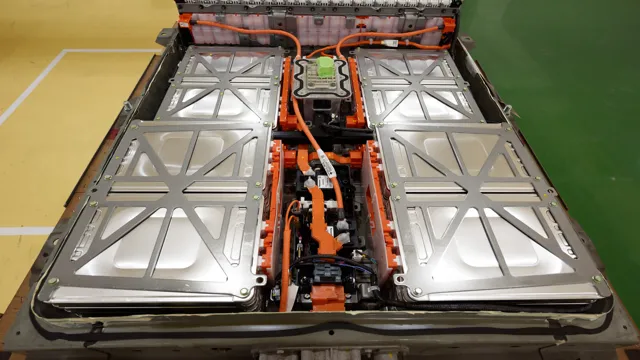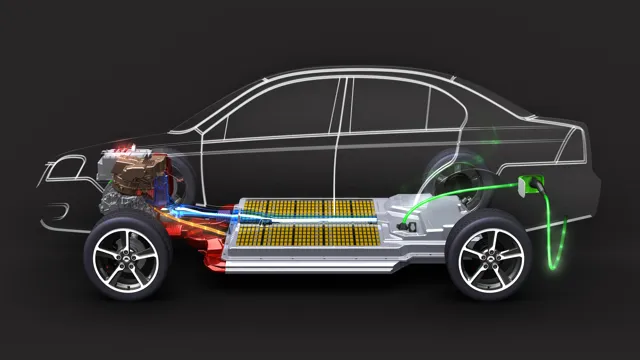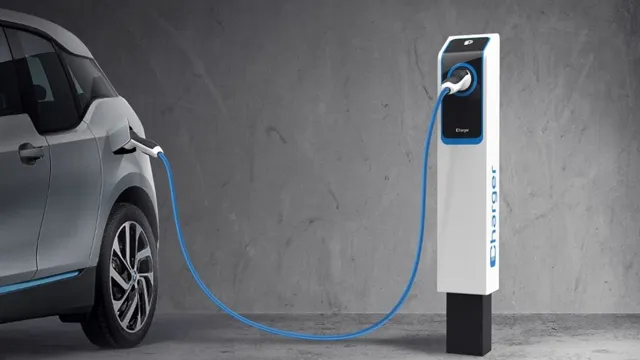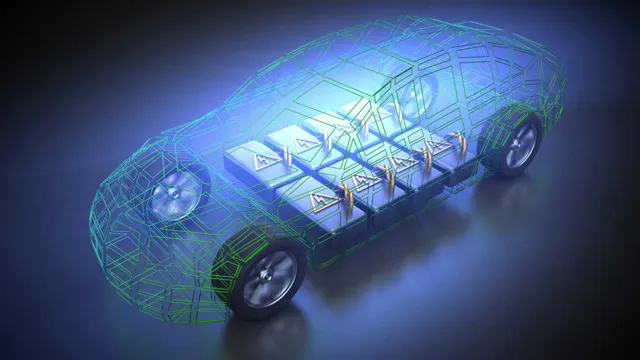The Future of Transportation: Exploring the Latest Innovations in Electric Car Batteries in the UK
Electric cars are no longer a far-off concept; they’re quickly becoming a more common sight on the roads of the UK. But what about their batteries? The state of electric car batteries is a topic of great interest, particularly as they’re the heart of these vehicles. As technology marches on, the range of electric cars has increased, and the cost has come down.
However, there’s always room for improvement, and many people are wondering what the future holds for this nascent industry. The UK has made significant strides in promoting electric vehicles, with the government offering incentives such as grants and tax breaks for buyers. The number of charging stations is also growing, further motivating drivers to switch to these clean vehicles.
The increasing demand for electric cars has placed significant pressure on the industry to innovate and improve upon existing battery technology. One of the biggest challenges facing the electric car market is developing a battery that provides sufficient range, is affordable, and has a long lifespan. Currently, the cost of electric car batteries is still relatively high compared to conventional vehicles, and their lifespan is a concern for some drivers.
However, with the continued development of lithium-ion batteries and the emergence of solid-state batteries, there’s hope that these issues will be resolved in the near future. In conclusion, the state of electric car batteries in the UK is one of rapid progress, with technological advancements being made every day. As more people make the switch to electric vehicles, the market will continue to evolve and improve.
With the UK government encouraging the adoption of these vehicles, the future of electric cars looks bright. As battery technology improves, and prices come down, electric cars will likely become the norm rather than the exception.
Current trends
With the ever-increasing demand for electric cars, the UK is pushing forward in the production and innovation of electric car batteries. The looming threat of climate change has led to a surge in eco-friendly transportation options, with electric cars being at the forefront of this movement. The UK has set an ambitious goal to phase out the sale of new petrol and diesel cars by 2030, marking a significant shift in the country’s transportation industry.
To meet this target, the production of electric car batteries is becoming more critical, and the UK government is investing in research and development to improve battery technology. Exciting advancements are being made, such as the creation of solid-state batteries that will be able to store more energy, charge faster, and be safer than the traditional lithium-ion batteries. These innovations will make electric cars more practical for long-distance travelling, further encouraging their use and marking another milestone in the UK’s journey towards a greener society.
Battery range
When it comes to electric vehicles, battery range is a crucial consideration. Fortunately, improvements in battery technology and charging infrastructure have led to significant gains in range over the years. The current trend is towards longer and longer battery ranges, with some top-of-the-line EVs boasting ranges of over 400 miles on a single charge! This is thanks in part to innovations in battery chemistry, as well as the use of more lightweight materials in car design.
Additionally, the growing availability of fast-charging stations means that EV drivers can top up their batteries quickly and easily on long journeys. Of course, battery range is still a concern for many EV drivers, but it’s worth noting that with the current rate of progress, we can expect to see even greater gains in range in the years to come.

Battery technology advancements
As technology continues to advance, one area of innovation that has been gaining significant attention is battery technology. With the rise of electric vehicles and renewable energy sources, there is a growing need for more efficient and longer-lasting batteries. Current trends within battery technology include the development of solid-state batteries, which have the potential to offer higher energy densities and improved safety compared to traditional lithium-ion batteries.
Researchers are also exploring the use of alternative materials, such as sodium and magnesium, to create more sustainable and cost-effective battery solutions. Additionally, there is a focus on improving the performance of existing battery technologies by optimizing electrode materials and developing more advanced battery management systems. As the demand for energy storage solutions continues to grow, it is likely that we will see even more exciting advancements in battery technology in the coming years.
Costs and charging amenities
If you’re an electric vehicle owner in the UK, you might be wondering about the different costs and charging amenities that are available to you. The cost of charging a battery can vary depending on several factors, such as the method of charging, the location, and the time of day. Some public charging stations offer free charging, but others may require payment through a membership or pay-as-you-go system.
It’s important to research and compare charging stations to find the most cost-effective options. When it comes to charging amenities, some charging stations may offer additional perks like Wi-Fi, food and drink options, and even car wash services. These amenities can provide a more enjoyable charging experience, but it’s important to remember that they may come with an additional cost as well.
Ultimately, planning ahead and exploring different charging options can help you make the most out of your electric car battery in the UK.
Cost comparison to petrol cars
When it comes to the cost comparison between electric cars and petrol cars, there are a few things to consider. Firstly, the initial cost of purchasing an electric car tends to be higher than that of a petrol car. However, this is often offset by the lower running costs of an electric car.
For example, electricity is cheaper than petrol, so the cost of charging an electric car is significantly less than filling up a petrol car. Additionally, maintenance costs for electric cars tend to be lower as they have fewer moving parts and don’t require oil changes. Charging amenities are also becoming more widely available, with many public car parks, shopping centers, and service stations now offering electric vehicle charging points.
Some workplaces even have their own charging facilities for their employees. As the popularity of electric cars grows, more and more charging options are becoming available, making it easier and more convenient to own an electric car.
Charging station infrastructure
When it comes to establishing charging station infrastructure, costs and charging amenities are two critical factors to consider. Installing a charging station requires a significant upfront investment, which includes purchasing equipment and obtaining necessary permits and certifications. The total cost of installation may vary depending on the location, available power supply, and charging technology used.
In addition to the initial investment, there are ongoing maintenance and electricity costs. But while the costs can be significant, electric car owners are often willing to pay for the convenience of being able to charge their vehicles quickly and reliably. Charging amenities like access to Wi-Fi, comfortable seating areas, and nearby entertainment opportunities can also make EV owners feel more comfortable and confident, increasing the appeal of an installed charging station.
As more charging infrastructure continues to be built across the country, the costs of installation and maintenance may decrease, making electric vehicle ownership more accessible and affordable to all.
The Future of Electric Car Batteries in the UK
The future of electric car batteries in the UK is looking positive as advancements in technology continue to push boundaries. With increasing concerns about the environment and reducing carbon emissions, electric cars have become an attractive option for many drivers in the UK. The country has set ambitious targets to phase out petrol and diesel cars by 2035, with hybrid cars set to follow by 203
This move has created an even greater demand for more efficient and durable electric car batteries. In response, companies are developing new battery technologies that promise longer ranges, faster charging times, and greater energy density. There’s also a trend towards recycling and repurposing used batteries to promote sustainability.
However, the cost of electric cars and their batteries remains a challenge for many. Nonetheless, we can only hope that as new technologies continue to emerge, prices will fall, and the adoption of electric cars will accelerate, creating a greener future for the UK.
Potential advancements in technology
Electric car batteries have come a long way, and the UK is taking notice. The future of electric car batteries is promising, with exciting possibilities for advancements in technology. One potential advancement is the use of solid-state batteries.
These batteries use a solid electrolyte instead of a liquid one, which can result in higher energy density and faster charging times. Another promising development is the use of silicon as a replacement for graphite in the battery’s anode. Silicon has a higher energy density than graphite, which can result in longer driving ranges.
The UK government is also investing in research and development to ensure that electric car batteries are recyclable and environmentally friendly. With advancements like these on the horizon, the future of electric car batteries in the UK looks bright.
Spread of charging stations
As the popularity of electric vehicles continues to rise, so does the need for more charging stations. The UK government has set a target of achieving net-zero emissions by 2050, and as part of this plan, they have pledged to invest in the necessary infrastructure to support the shift to electric cars. This investment will see an increase in the number of charging stations available across the country, providing more options for electric car owners to top up their batteries.
In addition to this, there are also plans to improve the speed of charging, with new technology in development that could see electric car batteries being charged in just a few minutes. The spread of charging stations is an important piece of the puzzle in making electric cars a viable alternative to petrol and diesel vehicles and is a key factor in encouraging more people to make the switch. With more charging stations available, UK drivers will have the confidence to travel further afield, safe in the knowledge that they can recharge their vehicle when needed.
Conclusion
In conclusion, the electric car battery revolution in the UK is sparking a shift towards more sustainable transportation. With advancements in technology and infrastructure, the idea of driving an electric car is no longer a pipe dream. And while some may still argue that electric cars are not as powerful or efficient as their gas-guzzling counterparts, the truth is that they are steadily improving.
So, whether you’re looking to save money on fuel costs or reduce your carbon footprint, an electric car battery is a smart choice for the future of transportation. Charge up and hit the road, the future is electric!”
FAQs
What is the current market share of electric car batteries in the UK?
Electric car batteries currently hold a market share of around 10% in the UK.
How long do electric car batteries typically last before needing to be replaced?
The lifespan of an electric car battery can vary depending on usage, but most manufacturers offer a warranty for 8-10 years or 100,000 miles.
Are there any government incentives or grants for purchasing an electric car battery in the UK?
Yes, the UK government offers a grant of up to £3,000 for the purchase of a new electric car or up to £350 towards the installation of a home charging station.
How does the cost of owning and operating an electric car battery compare to a traditional gasoline car in the UK?
While the initial purchase price of an electric car may be higher, the cost of electricity to power the car is generally much lower than gasoline. Additionally, electric cars typically require less maintenance and have longer lifespans, making them a more cost-effective option over time.







